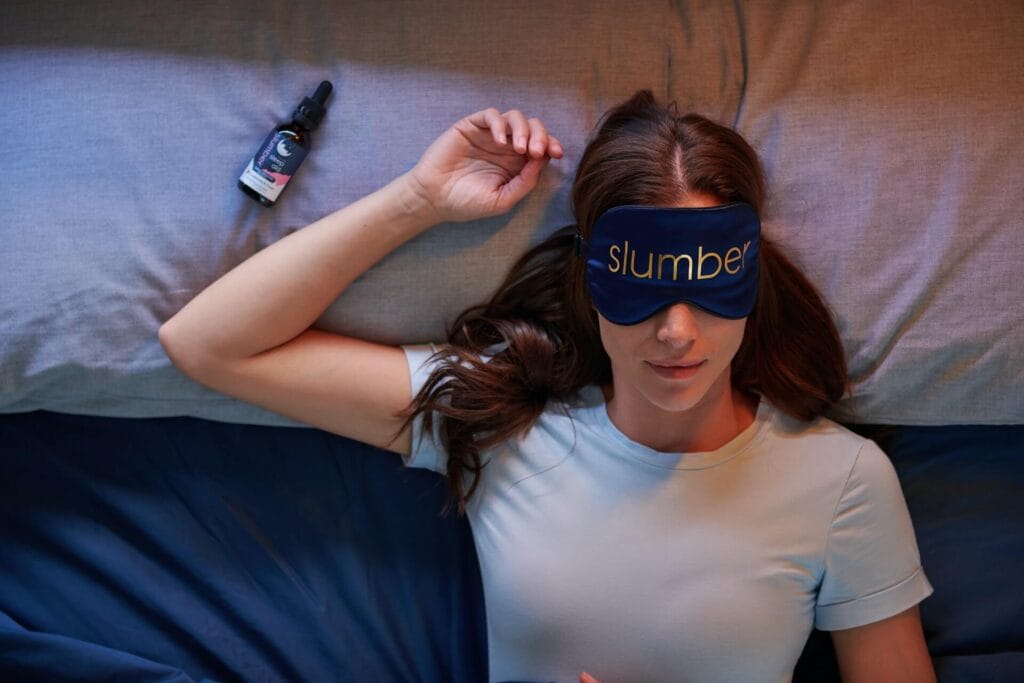Study finds Covid-19 Worry Causes Insomnia. 3 tricks to Get your Sleep.

March 19, 2022. 4 Minutes read.
Table of Contents
ToggleCovid-19 has been linked to an increase in mental health concerns such as depression, anxiety, and substance abuse.
MHA Say “As the number of cases of COVID-19 increases so does the associated anxiety. For the general public, the mental health effects of COVID-19 are as essential to address as are the physical health effects.
And for the one in five who already have mental health conditions – or the one in two who are at risk of developing them – we need to take personal, professional, and policy measures now to address them.”
According to WHO, Fear, worry, and stress are natural reactions to perceived or real threats, as well as when confronted with uncertainty or the unknown.
As a result, fear is natural and understandable in the context of the Covid-19 pandemic.
The fear of exposure to the virus in a pandemic such as Covid-19 is one of the most significant changes to our daily lives, as our movements are restricted, Faced with new realities such as working from home, temporary unemployment, home-schooling children, and a lack of physical contact with other family members, friends, and colleagues, we must look after both our mental and physical health.
In addition to such problems, current findings indicate that sleep has been harmed. The pandemic has fuelled a huge rise in insomnia, with nearly 60% of people reporting a rise in sleeping issues since the outbreak began.
What is the New study of the University of Pennsylvania?
Affiliate Disclosure: A few links on this page are affiliate links, from which I receive a small commission from sales of certain items, but the price is the same for you. Thank you for the Support.
Covid-19 disease (symptoms or virus exposure) isn’t the only cause of insomnia, according to new research published in the Journal of Sleep Research. Concerns about Covid-19 have also had a role.
Covid-19 exposures, Covid-19 anxieties, and sleeplessness were studied by University of Pennsylvania researchers led by Lily Brown Ph.D., an assistant professor of psychology in psychiatry and director of the Center for the Treatment and Study of Anxiety.
They discovered that the severity of Covid-19-related worries was linked to higher levels of insomnia symptom severity than Covid-19-related exposure, implying that Covid-19-related worries were a better predictor of insomnia than Covid-19 exposures.
What did the Penn study find?
The study was to look at the links between Covid-19-related exposures, Covid-19-related anxiety, and changes in insomnia symptoms.
Researchers used an interactive crowdsourcing research website to distribute a survey at three time periods over 6 months between April and August 2020 to quantify insomnia symptoms.
Researchers evaluated 1.Covid-19 related worries.
- Concerns about contracting Covid-19
- Dying of Covid-19
- Family infected with Covid-19
- Unknowingly infecting others,
- Having Covid-19, and
- their financial resources
2.COVID-19-related exposures
- Getting tested for COVID-19
- Having COVID-19 symptoms,
- Knowing someone who tested positive for Covid-19,
- Knowing someone who died as a result of Covid-19,
- Job loss during the pandemic.
3. Severity of insomnia symptoms using the Insomnia Severity Index (ISI).
Researchers hypothesized that Covid-19-related worries and exposures would both predict an increase in insomnia.
What did the Study Conclude?
Researchers concluded that Covid-19 worry factors were continuously associated with higher levels of insomnia severity, but Covid-19 exposure variables were not.
Covid-19 worries decreased significantly over time, and there were significant interactions between Covid-19 worries and insomnia severity change over time.
Individuals who experienced an increase in Covid-19 anxiety also experienced an increase in the severity of their insomnia.
Changes in worry were associated with changes in insomnia during the Covid-19 pandemic; worries about Covid-19 were a more consistent predictor of insomnia than Covid-19 exposures.
So, evidence-based treatments aimed at reducing virus-related anxiety may help with insomnia during this and future crises.
What did the Study Expert Lilly Brown say?
Brown explained “We’ve found that worries about Covid-19 worsens insomnia, regardless of actual risk,”
“These finding impact the care we can provide. It’s helpful because exposure to risk may or may not be modifiable – depending on one’s job, for instance—but changing how one manages worries is very doable.”
Following 3 tricks can make your good night’s sleep according to Brown, Why don’t you try it?.
3 tricks to Get your Sleep. 1. Manage Your bedtime
The first trick may seem counterintuitive, but Brown advises decreasing time spent in bed.
People who suffer from insomnia tend to follow a pattern. Because they are getting less and less sleep, they are going to bed sooner and earlier.
For example, if you can’t sleep until 3 a.m., you could go to bed at 8 p.m. to try to get more sleep, but you just wind up staying awake in bed longer, rather concentrate on sleep efficiency. You want to spend roughly the same amount of time in bed as you do asleep.
To do so, move your bedtime back while maintaining the same amount of time awake. It may sound counterintuitive, but when people become more exhausted earlier and earlier, they can get more sleep over time. It’s essential to wake up at the same time every day if you utilize this technique.
2. Skip Your Nap
Avoid your naps if you want to improve your nighttime sleep. Brown advises reducing naps, especially if one is delaying bedtime to fall asleep faster once in bed.
You should make sure you’re not counteracting your efforts with additional nap time since this can backfire and you won’t truly get more sleep.
It may sound contradictory, but sticking to a routine and refusing to nap will eventually cause you to grow tired enough to go asleep at a more normal hour.
3. Limiting Your Screen Time
Due to the impact of screen light on sleep, Brown emphasizes the necessity of avoiding reading, browsing on your phone, or watching television.
Continued reading of disturbing news can disrupt sleep. (Example: Reading news or watching videos of ongoing Russian-Ukraine War, Emerging covid-19 new variants) However, putting your phone down before bed can help you avoid becoming engrossed in distressing content, which can disrupt your sleep.
“These are only a few of the pointers we discuss in cognitive behavioural therapy,” says Brown. “So, if you’re following this advise and still having trouble, don’t be afraid to seek expert assistance.”
If you’re feeling more depressed or anxious than usual, take it easy on yourself. You are not alone in your difficulties. Maintain as much of a routine as possible.
Even if you’re confined to your home, try to maintain your regular sleep, school, meal, and work schedule. This can assist you in maintaining a sense of normalcy. You will get a night of better sleep if you feel normal.
Still, fighting to get sleep? contact your primary care physician for further treatment.


